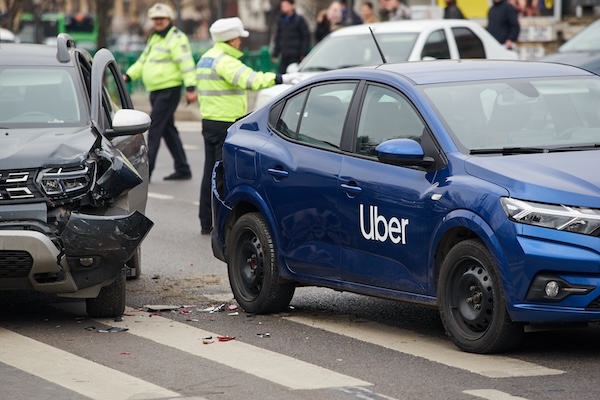Injured in an Atlanta hit-and-run? Our Georgia-licensed hit-and-run attorneys act fast to secure video, GEARS crash reports, and Flock Safety ALPR data while dealing with your insurer and medical bills. We handle UM/UIM and MedPay claims and file time-limited demands to protect your rights. No upfront fees, and we’re available 24/7. Call now for a free case evaluation.
Get Help Now – Free Case Evaluation
Call us 24/7 for immediate help or fill out our form for a free case evaluation. We’re here when you need us most.
Georgia Hit-and-Run Law (O.C.G.A. § 40-6-270): Duties and Penalties
What APD/GSP Require at the Scene and After a Crash
A hit-and-run occurs when a driver involved in an accident leaves the scene without stopping to help, exchange information, or report the incident to police. Georgia law requires drivers to stop immediately, provide their name and contact information, show their license, and help any injured people. Fleeing the scene is a serious crime.
Under Georgia Code § 40-6-270, drivers must stop and fulfill their legal duties after any accident. This law protects victims and ensures accountability. If someone is injured or killed, hit-and-run becomes a felony with possible prison time. Property damage only cases are typically misdemeanors, though still serious crimes.
The Atlanta Police Department (APD) handles crashes within city limits, while the Georgia State Patrol (GSP) investigates highway incidents. Both agencies work to identify fleeing drivers. Hit-and-run drivers face jail time, fines, license suspension, and civil liability for damages. Felony convictions can result in years in prison.
How to Get Your GEARS (BuyCrash) Report Fast
You can request your official crash report through the GEARS crash report system online by searching with your last name or report number and paying a small fee. APD reports typically post within days. This report is crucial evidence for your claim.
Hit-and-runs happen to pedestrians crossing streets, cyclists in bike lanes, parked cars, and during multi-vehicle crashes. Each situation requires specific legal approaches.
What To Do After a Hit-and-Run in Atlanta (APD/GSP Checklist)
Steps to Take Immediately After a Hit-and-Run
- Call 911 immediately and report to APD/GSP
- Photograph scene, vehicles, injuries, and surrounding area
- Identify and get contact information from all witnesses
- Request preservation of nearby video/surveillance footage
- Notify your insurer promptly but avoid giving recorded statements without counsel
Don’t Chase; Preserve Evidence and Witnesses
Your safety comes first. Never chase the hit-and-run driver. It’s dangerous and could hurt your case. Focus on gathering evidence safely at the scene. Even if injuries seem minor, get checked by medical professionals.
Take photos and videos of everything: vehicle damage, injuries, skid marks, debris, and the surrounding area. Get eyewitness testimony by collecting names and phone numbers of anyone who saw the accident. Their statements can be invaluable.
Check for nearby security cameras, dashcams, or doorbell cameras that might have captured the accident. Act fast as footage is often deleted quickly.
Send Preservation Letters and Subpoenas for Video
Have your attorney send spoliation/preservation letters to businesses with cameras. This letter places businesses on notice to preserve video evidence. If needed, counsel can follow with subpoenas to compel production of the footage.
File your police/accident report as soon as possible. This official record is essential for insurance claims and legal proceedings. Contact your insurance claim adjuster quickly but be careful. Don’t give recorded statements without talking to an attorney first.
Review your policy to understand your Uninsured Motorist (UM) coverage, Underinsured Motorist (UIM) coverage, and Medical Payments (MedPay) coverage. Never admit fault or apologize. Keep detailed records of all medical bills, repair costs, and other expenses related to the accident.
Evidence That Wins Hit-and-Run Cases
Key Evidence
- GEARS crash report from APD/GSP
- Flock Safety ALPR hits and license plate data
- Surveillance footage from businesses and doorbell cameras
- Eyewitness statements and contact information
- Vehicle paint transfer and physical damage patterns
- Phone records and EDR (Event Data Recorder) information
- Medical records and expert testimony
Flock Safety ALPR, Doorbell Cams, and Dashcams
ALPR/Flock Safety cameras throughout Atlanta may have captured the fleeing vehicle’s license plate. Time is critical – your lawyer can request Flock hits or coordinate with APD to pull plate reads along likely routes. Surveillance/video evidence from security cameras, Ring doorbell cams, and dashcams can capture the accident and potentially identify the vehicle.
Physical evidence like paint transfer can help identify the other vehicle’s make and color. Check neighborhood apps for potential footage or witness information.
Accident Reconstruction and Medical Expert Testimony
An accident reconstructionist can analyze evidence to determine how the crash occurred. Medical expert testimony documents your injuries and supports your damage claims. Electronic data from vehicles and phones can provide valuable information about the crash.
Your Insurance Options in Georgia
Insurance Coverages That May Apply
- UM/UIM Coverage: Pays for injuries when the at-fault driver has no insurance or insufficient coverage (typical deductible: $0)
- UMPD vs. Collision: UMPD covers property damage from uninsured drivers (optional, may have deductible); Collision pays faster regardless of fault, and your insurer can subrogate if driver is found
- MedPay: Covers medical expenses regardless of fault (typical limits: $1,000-$10,000, no deductible)
UM/UIM Coverage Explained (O.C.G.A. § 33-7-11): Add-On vs. Reduced-By, Stacking
Georgia law requires insurers to offer UM/UIM coverage under O.C.G.A. § 33-7-11. Add-on coverage preserves your full liability limits by adding the at-fault driver’s coverage to yours. For example, if you have $100,000 in add-on UM and the at-fault driver has $25,000, you can recover up to $125,000. Reduced-by coverage subtracts the at-fault driver’s coverage from yours. You can also stack coverage when you have multiple resident-relative policies, potentially increasing your total available coverage.
For “John Doe” hit-and-runs where the driver is never identified, Georgia requires corroboration and physical contact with the phantom vehicle to pursue UM benefits.
UMPD vs. Collision for Property Damage
UM Property Damage (UMPD) is optional coverage that may carry a deductible. Collision coverage may pay faster regardless of fault, and your insurer can subrogate (seek reimbursement) if the hit-and-run driver is later found.
MedPay with Health Insurance and Subrogation
MedPay covers medical expenses regardless of fault, providing immediate help with bills. We coordinate MedPay with your health insurance to minimize out-of-pocket costs while addressing health insurance subrogation (Medicare/Medicaid/ERISA) issues.
Damages and Deadlines
Compensation You May Be Entitled To
- Medical bills (past and future treatment, therapy, medications)
- Lost wages and diminished earning capacity
- Pain and suffering, emotional distress
- Property damage and diminished value of your vehicle
- Punitive damages (where applicable, especially DUI cases)
Economic vs. Non-Economic Damages; Punitive Damages for DUI
We calculate both economic vs. non-economic damages to ensure you’re fully compensated. Economic damages include medical bills and lost wages. Non-economic damages cover pain and suffering.
Punitive damages (O.C.G.A. § 51-12-5.1) may apply in cases involving DUI or extreme recklessness. Georgia law generally caps punitive damages at $250,000, but there’s an exception for DUI cases under O.C.G.A. § 51-12-5.1(f) where no cap applies.
Diminished value claims are recognized in Georgia even after quality repairs. You’ll typically need an independent diminished value appraisal to prove your vehicle’s reduced worth.
Statutes of Limitation (O.C.G.A. §§ 9-3-33, 9-3-31) and the 50% Bar Rule
You have two years for injury claims under statute of limitations – injury (O.C.G.A. § 9-3-33) and four years for property damage under statute of limitations – property damage (O.C.G.A. § 9-3-31).
Under Georgia’s comparative negligence (O.C.G.A. § 51-12-33) rules, you can recover damages if you’re less than 50% at fault. Your recovery is reduced by your percentage of fault. This is known as the 50% bar rule.
The Georgia Crime Victims Compensation Program may provide additional assistance. Eligibility requirements include reporting the crime promptly, cooperating with law enforcement, and filing within specific windows. Award caps apply, and this supplements—not replaces—UM benefits.
For fatal accidents, families can pursue wrongful death (O.C.G.A. § 51-4-2) claims with a two-claim structure: full value of life plus an estate claim for medical bills, funeral expenses, and conscious pain and suffering.
How Our Atlanta Personal Injury Attorneys Help
As your personal injury attorney, we conduct thorough investigations beyond what police may do, tracking down evidence and witnesses. We use every resource available to identify the fleeing driver, including private investigators and technology tools.
We collaborate with experts including accident reconstructionists and medical professionals to build the strongest possible case. We handle all insurance company communications, protecting you from tactics that could reduce your compensation.
Time-Limited Demands (O.C.G.A. § 9-11-67.1) and Negotiation Strategy
We prepare strategic time-limited demands under O.C.G.A. § 9-11-67.1 to maximize your recovery potential. Our demand letter and negotiation/settlement process is designed to get you the best possible outcome. If the driver isn’t found, we pursue your UM/UIM coverage aggressively to get you compensated.
EUOs/IMEs, Hospital Liens, and Lien Resolution
We prepare you for any Examination Under Oath (EUO) or Independent Medical Examination (IME) required by insurers. Warning: failing to attend an EUO can jeopardize your UM benefits, so let counsel prepare you properly.
We negotiate hospital liens (O.C.G.A. § 44-14-470 et seq.) to reduce what you owe from your settlement. Hospitals must “perfect” their liens to be enforceable, and liens can often be negotiated to improve your net recovery.
When drivers are caught, we work with prosecutors, especially in DUI cases where punitive damages may apply. If necessary, we file suit in Fulton County and DeKalb County courts and represent you through trial.
Where Hit-and-Runs Happen in Atlanta (Fulton & DeKalb)
High-risk corridors
Major highways like I-75/85 Downtown Connector, I-285, I-20, and GA-400 see frequent hit-and-run accidents.
Busy surface streets
Peachtree Street, Piedmont Road, Northside Drive, and Moreland Avenue are common accident locations.
Neighborhoods
We handle cases throughout Midtown, Buckhead, Old Fourth Ward, and West End.
Surrounding areas we serve
Our services extend to Sandy Springs, Decatur, East Point, and Brookhaven.
Why Choose a Local Atlanta Attorney?
Experience with local laws, courts, and procedures
We understand Georgia’s specific laws and local court procedures that affect your case.
Knowledge of Atlanta-area insurers and adjusters
Our familiarity with local insurance companies helps us negotiate effectively.
Access to local investigators and expert resources
We have established relationships with Atlanta-area experts and investigators.
Fulton and DeKalb County court familiarity
Our experience in local courts means we know the judges and procedures.
In-person availability for consultations and site inspections
Being local means we can meet with you and visit accident scenes when needed.
What to Expect at Your Free Case Evaluation
Documents to Bring
- Police report number or GEARS receipt
- Medical records and bills
- Insurance declarations page showing your coverages
What we’ll review
We’ll examine your police report, medical records, and insurance declarations to assess your case.
How contingency fees work and costs are handled
You pay nothing upfront. We only get paid if we win your case.
Your next steps and how we keep you updated
We’ll outline your options and maintain clear communication throughout your case.
Ready to Get Started?
Get a free case evaluation today. Don’t wait – evidence disappears and deadlines pass quickly. Call 24/7 for immediate help.
FAQs
Call 911, get medical attention, document everything you can, and contact an attorney before giving insurance statements.
Yes, through your Uninsured Motorist coverage if you have it. This coverage protects you when at-fault drivers can’t be identified.
Nothing upfront. We work on contingency, meaning we only get paid if we win your case.
Two years for injury claims, four years for property damage. But act quickly – evidence disappears fast.
Medical expenses, lost wages, pain and suffering, property damage, and potentially punitive damages.
If you have UM/UIM coverage, it should protect you. We’ll review your policy to maximize coverage.
Lawyers investigate thoroughly, handle insurers professionally, and know how to maximize compensation through proper legal procedures.
Police reports, witness statements, video footage, and medical records are critical. We help gather and preserve all evidence.
Cases vary from months to years depending on whether the driver is found and case complexity.
Most cases settle without court through negotiation. We explore all options to get you compensated.
Using both strategically can minimize your out-of-pocket costs. We’ll advise on the best approach.
Generally no – you’re using coverage you paid for when someone else caused the accident.
You may have claims through your auto insurance, the driver’s insurance if found, or other sources. We’ll identify all options.
Georgia requires physical contact with the phantom vehicle and corroboration (such as witness testimony or physical evidence) to pursue UM benefits when the at-fault driver is unidentified. Without contact, your UM claim may be denied.
Liens may need to be repaid, but they can often be negotiated down significantly. We work to reduce hospital liens and handle Medicare/Medicaid/ERISA subrogation claims to maximize your net recovery.
Yes, we immediately send preservation letters to secure video evidence and coordinate with APD to access Flock Safety ALPR data. Our proactive approach and local resources help identify hit-and-run drivers others might miss.
Don’t Face This Alone – Get Expert Legal Help Now
Hit-and-run accidents are traumatic and complex. You need an experienced advocate on your side. Call 24/7 for immediate help or get a free case evaluation online. We’re here to fight for you.
Timeline of the Legal and Insurance Process
Initial investigation and medical treatment
The first weeks focus on getting medical care and preserving evidence.
Notice to insurers and prompt UM claim setup
We notify all relevant insurers and establish your UM/UIM claim quickly.
Demand package and negotiations (time-limited demands)
Once treatment is complete, we prepare comprehensive demand packages for negotiation.
Filing suit if needed
If fair settlement isn’t reached, we file suit to protect your rights.
Discovery, mediation, and potential trial
The litigation process includes information exchange, mediation attempts, and trial if necessary.
EUOs/IMEs and MMI (maximum medical improvement)
Insurance companies may require examinations before settling your claim.
Typical timing considerations and what impacts duration
Cases typically resolve in months to years depending on complexity and whether the driver is found.
Important Resources
- CDC Transportation Safety
- State of Georgia
- Georgia Office of Insurance and Safety Fire Commissioner
- Georgia Code § 40-6-270 (Hit-and-Run)
This page provides general information for Atlanta, Georgia. It is not legal advice and does not create an attorney-client relationship. Legal outcomes depend on specific facts.



